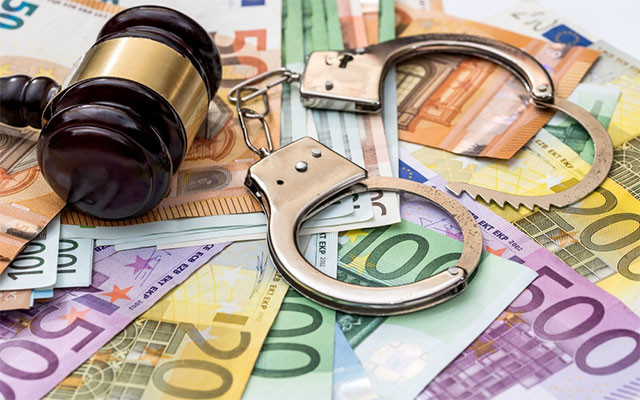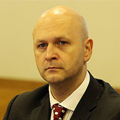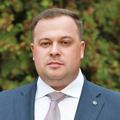
A BRIEF SUMMARY REGARDING THE APPLICATION OF THE ORDER ON EXTENDED CONFISCATION IN LATVIA REGARDING FINANCIAL ASSETS OF NON-RESIDENTS

Home quote
From 2018, Directive 2014/42 of the European Parliament and the Council on the freezing and confiscation of criminal tools and proceeds of crime in the European Union has been introduced and actively applied in Latvia. In this regard, several amendments were made to the Latvian Criminal Procedure Law in order to help the competent institutions conducting pre-trial investigations, within the framework of the special process, to recognize as criminally obtained and to confiscate in the state budget funds that the investigation would have grounds to consider as "rather criminally obtained".
The issue of combating the legalization of illegally obtained funds in the world and in every country a lot of attention is paid. The experience of the Latvian legal system is very interesting. The practice of providing legal assistance in cases related to confiscation in Latvia financial assets of non-residents are shared by practicing lawyers of the Advocacy Bureau "ACTIUM", Riga, Latvia, Serhey Hidasheli and Dmitry Skachkov, who specialize in providing legal assistance in the specified cases. In the given case, during the execution of orders competent law enforcement agencies of Latvia and Ukraine, within international limits cooperation of law enforcement agencies, provided legal assistance to clients in Ukraine founder of the Law Office «Kolesnikov I.V. and Partners», attorney at law Ihor Kolesnikov.
From 2018, Directive 2014/42 of the European Parliament and the Council on the freezing and confiscation of criminal tools and proceeds of crime in the European Union has been introduced and actively applied in Latvia.
In this regard, several amendments were made to the Latvian Criminal Procedure Law in order to help the competent institutions conducting pre-trial investigations, within the framework of the special process, to recognize as criminally obtained and to confiscate in the state budget funds that the investigation would have grounds to consider as "rather criminally obtained".
In order to achieve such a goal, the Latvian legislator introduced the special status of a party to the case in the Criminal Procedure Law - the owner of property damaged in the criminal procedure. A party to the case with such a status is maximally limited in the realization of his rights, because he and his property are not subject to strict requirements of evidentiary standards (presumption of innocence and others), as applicable to the accused or suspect.
Such a lowered standard of proof led to the fact that the investigation requires the owner of the property to prove the legal origin of the property, evaluates it itself, but if this is insufficient "in the opinion of the investigation", considers "that the property has a criminal origin rather than a legal one" and proposes to the court to recognize this property for criminally obtained or related to a criminal offense and to confiscate it in the state budget.
The investigation proposal, without clarifying the data on the victims, is considered in a special accelerated process in two court instances (first instance and appeals). The decision of the appellate body is final and non-appealable.
However, despite obvious arbitrariness and legal nihilism on the part of the police and the prosecutor's office, lawyers who defend the interests of clients in cases of this category managed to create a practice that helps to successfully defend against illegal attempts to confiscate assets.
Of these, the most commonly applicable considerations are:
1. Proving that the investigation was not carried out in full and high quality, therefore, the mandatory prerequisite for starting the process for criminally obtained property has not been met.
Article 626 of the Law on Criminal Procedure of the Republic of Latvia provides for two mandatory prerequisites for the initiation of proceedings on criminally acquired property: if the evidence gives reason to believe that the property seized or seized was criminally obtained or related to a criminal offense, and if for objective reasons transfer of the criminal case to the court in the near future (within a reasonable period of time) is not possible or it may cause significant unjustified expenses.
Therefore, in the event that the investigator did not properly carry out investigative activities, the mandatory prerequisite for starting the process for criminally obtained property cannot be established, as provided for in Article 626, Part One, Clause 2 of the Law on Criminal Procedure.
2. Drawing the court's attention to the fact that the duty of the investigator is to prove that the property is likely to have been obtained criminally or is related to a criminal offense.
Section 125, Part Three of the Law on Criminal Procedure stipulates that it shall be considered proven that the property with which the legalization activities were carried out was obtained criminally if the person involved in the criminal proceedings is unable to reliably explain the legal origin of the property in question and if the body of evidence gives the person in charge of the process a basis for the assumption that the property is likely to be of criminal origin.
According to the second part of Article 126 of the Law on Criminal Procedure, the burden of proof in pre-trial criminal proceedings rests with the person leading the proceedings, and in court - with the prosecutor.
This opinion is also expressed in the legal literature of Latvia: the obligation to prove the legal origin of the property does not apply to every case where the issue of criminally obtained property is considered, but only when a person is obliged to prove the legal origin of the property in accordance with the norms of the Criminal Law, i.e. in case of application of the presumption of criminal origin of the property (section 70.11, part 2, 3 of the Criminal Law). (Scientific monograph edited by Prof. Kristīne Strada-Rozenberg. Commentaries on the Criminal Procedure Law Part A. Riga: Latvijas vestnesis, 2019, p. 427).
Article 626 of the Law on Criminal Procedure stipulates that the initiator of the process can start a process for criminally acquired property, if a set of evidence gives reason to believe that the property seized or seized is criminally acquired or related to a criminal offense. However, the initiator of the process did not indicate in the decision what evidence together, in his opinion, indicates the possibility of starting a process for criminally obtained property.
3. Drawing the court's attention to the fact that the investigator has not indicated what criminal activities, in his opinion, are related to the legalization of proceeds of crime.
Considering that there are no persons prosecuted in such proceedings, it is about the application of extended confiscation of property in the sense of Directive 2014/42 of the European Parliament and of the Council on the freezing and confiscation of tools of crime and proceeds of crime in the European Union.
According to Part 21 of the Preamble of the Directive, extended confiscation should be possible if the court is convinced that the property in question was derived from criminal activity. This does not mean that it is necessary to prove that the property in question was derived from criminal activity. Member States may provide that, for example, it may be sufficient if the court considers, or reasonably assumes, that there is a much greater chance that the property in question was derived from criminal activity rather than from other activities. In this regard, the court must take into account the specific circumstances of the case, including the facts and the available evidence on which a decision on extended confiscation could be made. The fact that a person's property is disproportionate to the person's legitimate income could be one of the facts supporting the court's conclusion that the property was obtained through criminal means. Member States could also set a requirement for a specific period of time during which the acquired property could be considered criminally acquired.
Therefore, the Directive clearly indicates the need to determine the existence of a criminal activity in order to further judge the connection of property with the legalization of proceeds of crime.
Article 2 of Directive 2018/1673 of the European Parliament and of the Council on Combating Money Laundering with Criminal Law provides a definition of criminal activity.
Article 9, Part 6 of the Council of Europe Convention on the Prevention of Money Laundering and Financing of Terrorism, as well as the Search, Seizure and Confiscation of these Funds provides that each Member State shall ensure that, in accordance with this Article, a person may be convicted of money laundering, if it has been proven that the property specified in subparagraph a) or b) of Clause 1 of this Article was obtained by committing a predicate offense, moreover, in such a case, it is not necessary to prove exactly which crime the acquisition of such property is related to.
Therefore, in order to conclude about the criminal origin of the property, the investigator must at least point to reliable circumstances of the case that would indicate the existence of initial criminal activities. This conclusion was also expressed in the jurisprudence of the European Court of Human Rights, finding a violation of Article 1 of Protocol 1, it stated that the national courts that examined the confiscation applications of the applicants did not indicate the possible criminal activity that led to the acquisition of the assets to be confiscated, and did not establish any connection between these assets and criminal activity (see the judgment of the European Court of Human Rights of July 13, 2021 (final version on October 13, 2021) in the case "Todorov and Others v. Bulgaria", No. 50705/11, paragraph 320).
4. The investigation often violated the provisions of the law on the validity of the Criminal Code at the time.
The first part of Article 5 of the Criminal Law of the Republic of Latvia states that the criminality and criminality of an offense (act or omission) is determined by the law that was in force at the time of the commission of this offence.
In practice, it often happens that the investigator claims that the person laundered the proceeds of crime, because his activity formally corresponds to the features determined in the methodology material of the Financial Intelligence Service "Typologies and signs of laundering of proceeds of crime". Therefore, the investigator tries to apply the material of the 2020 methodology to transactions made earlier.
Such action is contrary not only to the norms of the Criminal Law, but also to Article 105 of the Constitution (Constitution of the Republic of Latvia), because property rights can be limited only in accordance with the law, not typologies.
Also, point 16 of the second section of the European Court of Human Rights' guidelines of April 30, 2022 "On Article 7 of the European Convention on Human Rights" provides that not only the substantive criminal law norm, but also the criminal procedural norm that worsens the individual's situation, has no retroactive effect (Guide on Article 7 of the European Convention on Human Rights, available in English on the website of the European Court of Human Rights).

Sergey Hidasheli
attorney at law, partner law office ACTIUM, Riga

Dmitry Skachkov
attorney at law, partner law office ACTIUM, Riga

Ihor Kolesnykov
attorney at law, founder of the law office « KOLESNYKOV I.V. and Partners»
© 2026 Unba.org.ua Всі права захищені
"Національна Асоціація Адвокатів України". Передрук та інше використання матеріалів, що розміщені на даному веб-сайті дозволяється за умови посилання на джерело. Інтернет-видання та засоби масової інформації можуть використовувати матеріали сайту, розміщувати відео з офіційного веб-сайту Національної Асоціації Адвокатів України на власних веб-сторінках, за умови гіперпосилання на офіційний веб-сайт Національної Асоціації Адвокатів України. Заборонено передрук та використання матеріалів, у яких міститься посилання на інші інтернет-видання та засоби масової інформації. Матеріали позначені міткою "Реклама", публікуються на правах реклами.